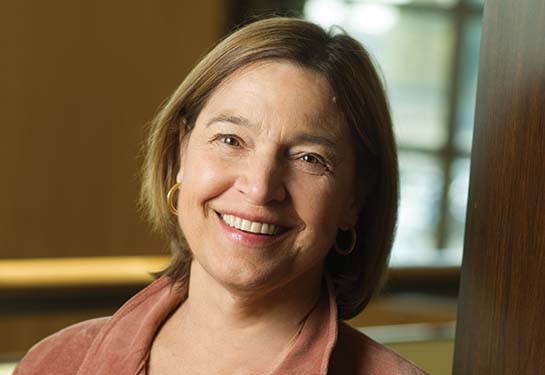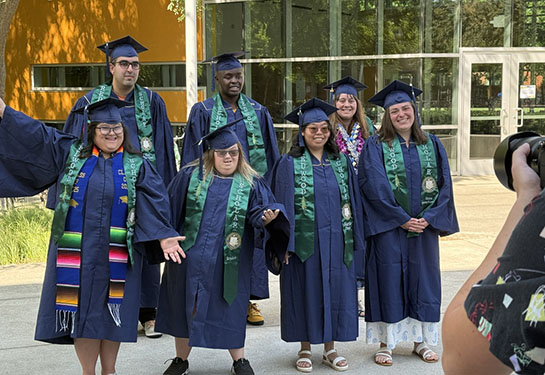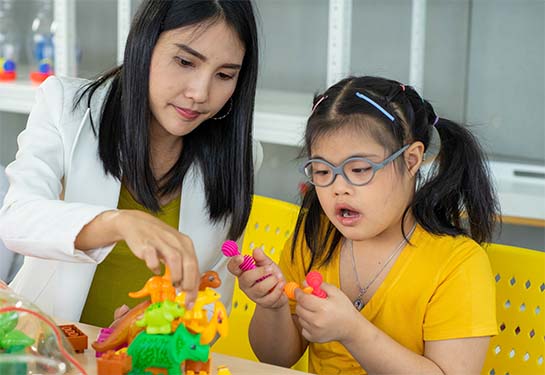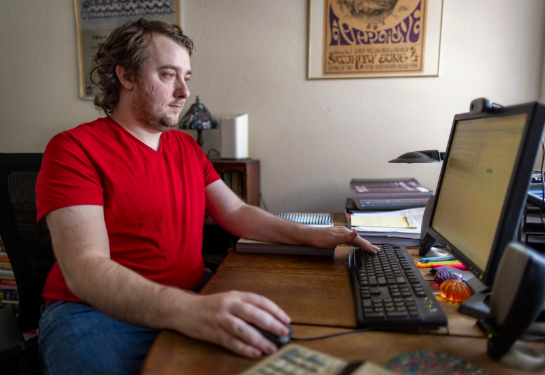MIND Institute’s Sally J. Rogers receives lifetime achievement award for work on autism
Rogers honored by International Society for Autism Research this week
Developmental psychologist Sally J. Rogers, who co-developed a leading form of behavioral therapy for autism, has received the Lifetime Achievement Award from the International Society for Autism Research (INSAR). She accepted the award this week at the annual meeting in Austin, Texas.
Rogers, a UC Davis MIND Institute faculty member and licensed psychologist, is an professor emeritus in the Department of Psychiatry and Behavioral Sciences.
“It’s a real honor,” Rogers said. “The best scientists in the world in autism research belong to this group of people so it means so much to have my work singled out in this way.”
The INSAR award acknowledges an individual who has made “significant fundamental contributions to research” on autism that have had a lasting impact on the field.
“I do this work because I love the work,” Rogers said. “It’s very compelling to me and it really drives me, but it’s nice to know that people outside the world of early intervention also appreciate what my team and I have been doing all these years.”
Rogers, a pioneer in early intervention, has spent more than 40 years in the field, half of those at UC Davis and half of those in Denver, developing the original Denver Model of early autism intervention. She and Geraldine Dawson created the Early Start Denver Model (ESDM), an intervention designed for infants, toddlers and young children with autistic characteristics. The ESDM manuals have been translated into more than 16 languages and are used by clinicians around the world. The MIND Institute offers training and certification classes in the approach.
“I never could have imagined it being so widely used, but I’m so glad that we’ve been able to provide help for all of those children and their families and that so many providers have found it so helpful that they are using it now. It’s incredible,” Rogers said.
I’ve been doing autism intervention since 1981. Some of the things I do now are so similar to what I was doing back in the early ‘80s, yet others are really different, because of what I’ve learned from the families and the children that we’ve worked with.” —Sally J. Rogers, professor emeritus in the Department of Psychiatry and Behavioral Sciences
“Dr. Rogers is so deserving of this honor,” said MIND Institute Director Leonard Abbeduto. “She has created a worldwide network of researchers and clinicians who are delivering evidence-based care for countless children and families. I’m thrilled that her achievements are being recognized.”
A lifelong interest in early childhood development
Growing up in the small town of Oberlin, Ohio, Rogers was always interested in babies and young children. “That was just a part of me,” she explained. As a teenager, she read an article in Life Magazine about a type of behavioral therapy for children with autism and that cemented her interest. In college, that interest in autism continued and grew as she sought out opportunities to work with autistic children.
Over the years, Rogers has specialized in conducting developmental and treatment research into autism and other developmental conditions and working with autistic children and their families. She studies early developmental processes, including imitation, social-communicative behavior, motor skills, language and social interaction patterns. She’s published more than 200 scientific papers and more than 300 publications overall, including studies comparing behavioral intervention methods, and serves on the editorial boards of many publications.
She notes that the field of early intervention has evolved significantly over her career.
“I’ve been doing autism intervention since 1981. Some of the things I do now are so similar to what I was doing back in the early ‘80s, yet others are really different, because of what I’ve learned from my colleagues in the field, my fellow team members, and especially from the families and the children that I’ve worked with,” she explained. “I’m so grateful to still be doing what I love.”
Related stories
For toddlers with autism more intervention hours are not necessarily better
The UC Davis MIND Institute in Sacramento, Calif. was founded in 1998 as a unique interdisciplinary research center where families, community leaders, researchers, clinicians and volunteers work together toward a common goal: researching causes, treatments and potential prevention of challenges associated with neurodevelopmental disabilities. The institute has major research efforts in autism, fragile X syndrome, chromosome 22q11.2 deletion syndrome, attention-deficit/hyperactivity disorder (ADHD) and Down syndrome. More information about the institute and its Distinguished Lecturer Series, including previous presentations in this series, is available on the Web at mindinstitute.ucdavis.edu.




